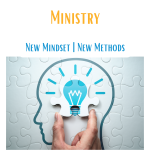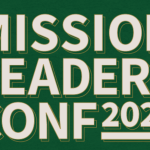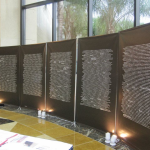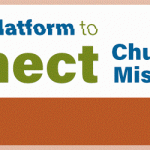Some have pointed us to…
http://www.ukmce.com/witnessing/sharing-the-gospel-with-muslim-people/
While others like the clarity and focus of the Camel Method…
Some prefer an in-person training program like Sahara challenge…
http://www.crescentproject.org/sahara
While others prefer a bolder approach like that used by Georges Housney, visible here…
The question is, which approach do you prefer for sharing hope and love with Muslim people? Please list just one URL in each comment box. Thanks.












I would also refer people to the great work done by the Fruitful Practice Research Team, which has spent years doing serious research among dozens of agencies – western and non-western – into principles and practices that generally lead to fruit in ministry to Muslims. Check out the book “From Seed to Fruit”, which identifies the fruitful practices.
Over the last couple of years we have sold many copies of Roland Muller’s MMC (“The Messenger, the Message and the Community”). It seems that a number of mission agencies and Christian schools have this book as required reading for those working with Muslims. The companion manual is “Understanding Islam.” These books often fly under the radar as they are not widely advertised but are spread by word of mouth. They have be published in various forms in other languages as well.
The July/August issue of Mission Frontiers aimed at equipping local Christians to start discipling movement among their Muslim neighbors. This article in particular distilled the best suggestions from a wide variety of experienced workers for how local believers can get started.
The larger issue also reported on a couple approaches which are contributing to the large numbers of breakthroughs which have developed in the Muslim world.
http://www.jaq.net is often mis-understood by folk who have not studied it seriously, but I believer there is much to be learned from this program. Also, I am thrilled with the results that are being seen from the Any-3 and the T4T approaches. While there are pitfalls to insider approaches to Muslims; these are avoidable and serious gospel workers should consider and learn from such methods.
Having successfully completed both 9-months of TOAG (JAQ-in-action, née JIQ) and also the full program of Engaging Islam, now known as SIMS, I think that I can say, without reservation, that the EI/SIMS approach provides the hearer with a clear message of the Gospel.
The Good News, as described plainly in the truth of God’s Word–the Bible–is very simple. It is helpful to understand the Qur’an, but only from the aspect of understanding the spiritual prison in which the Muslim lives.
It is important for the Muslim to understand from the beginning that the ‘Isa al-masih character in the Qur’an is not the same person as Messiah Jesus in the Bible. Jesus, the Son of God, is the only one who deserves to be glorified, as He is the only Savior. Give no quarter to the enemy’s clever forgeries.
Let us take seriously the command of 2 Corinthians 4:1-6, by setting forth the Truth plainly. Our jobs are to proclaim and make disciples. Allow the Holy Spirit to do His work in the heart and mind of the Muslim. Expect spiritual opposition when the Muslim’s heart is softening. But, we know that greater is He who is in us than he who is in the world.
Some of us have found ‘Meetings for Better Understanding’ (MBU) between Muslims and Christians a great tool for local churches to reach out to local Muslims.
The concept was developped by Dr Anees Zaka of ‘Church without walls’ and is summarized on this website: http://www.aboutabc.org (click on events for a summary).
It is arguably one of the best tools I have so far used.
Another great tool for sharing the love of Christ with Muslims is found in Shipman, Mike (2013-01-01). Any-3: Anyone, Anywhere, Anytime — Win Muslims to Christ Now! WIGTake Resources. ISBN-13: 978-1-939124-01-2) – Here is a two page article that contains a summary of it:
A great way to reach Muslims with the Gospel
Introduction
Every Muslim and every situation is different, so one has to adapt one’s approach to the person with whom one is talking. Therefore, be much in prayer and listen to the guidance of the Holy Spirit.
A major problem to avoid is becoming an ‘answering machine’ instead of sharing the Gospel. The Quran speaks against a misunderstood view of the Trinity and Jesus being (the Son of) God. It also rejects that Jesus died on the cross for our sins. Avoid trying to answer these questions – usually in conversations held with the same sex – in isolation from the context of the Bible story as a whole.
‘A great way’ (as found in John 4:4-30)
The power is in the gospel, not the method. The method is just the vehicle for presenting that powerful gospel.
STEP ONE: GET CONNECTED You can accomplish this with anyone by using two connecting questions: “Who are you?” and “How are you?” Take time to get acquainted with them, their family. Be friendly and open. Transition #1: “Are you Hindu, Muslim, Buddhist, or Christian?”
STEP TWO: GET TO GOD Step Two is accomplished with a question and an observation. The step-two question is: “Most religions are alike, aren’t they?” Then make the observation: “We are all trying to please God, so we can go to heaven some day, and we are all trying to pay off our sin debt. We all sin, don’t we? Even good people sin. Sinning is easy, but paying off our sin debt to God is much more difficult, isn’t it?” Transition #2: “In your religion, what are you doing to get your sins forgiven?”
STEP THREE: GET TO LOSTNESS After asking the person what are some of the things they are doing in their religion to please God and get their sins forgiven, let them tell you two or three things they are doing. Listen attentively and don’t be afraid to ask questions along the way. Wrap up the section by asking them three questions: First, “Are your sins paid off yet?” Second, “When do you think your sins will be paid off?” Third, “On Judgment Day, do you know that your sin debt will be paid?”
Transition #3: “What I believe is different; I know that my sins are forgiven. It is not because I am a good person, although I do try. I know my sins are forgiven, because God Himself has made a way for our sins to be forgiven.”
STEP FOUR: GET TO THE GOSPEL Tell the First and Last Sacrifice Story. (Adam&Eve, Jesus) Finish the First and Last Sacrifice Story by saying, “And that is why I know my sins are forgiven.” Transition #4: “According to the Bible, if we surrender our life to Jesus as Lord and believe that He has paid for our sins through His sacrifice and that God has raised Him from the dead, our sins will be forgiven.”
STEP FIVE: GET TO A DECISION To bring your conversation to a decision, ask two questions. First, “That makes sense, doesn’t it?” Though we cannot pay off our own sin debt, God has made a way for our sins to be forgiven through Jesus’ sacrificial death and resurrection. Second, “Do you believe what I have told you: that Jesus died for our sins and was raised again?” (Source: Shipman, Mike (2013-01-01). Any-3: Anyone, Anywhere, Anytime — Win Muslims to Christ Now! WIGTake Resources. ISBN-13: 978-1-939124-01-2)
How to deal with objections to the actual Gospel message:
‘Allah can forgive sins without a sacrifice.’ This is the biggest problem. Muslims are taught that man is born without having inherited the sin of Adam, yet he was created weak. Teaching Allah’s law will enable him to fight against his inclination to make mistakes. He has no need of salvation. Doing good deeds will grant him success in this life and the next, God willing. Only the Holy Spirit can convict of sin. Besides interceding for Muslims, ask the following questions to make them aware of the severity of sin:
“If teaching Allah’s law makes human beings strong and successful how comes that there is chaos, corruption and hypocrisy in so many Muslim countries that have Shariah law (e.g. Saudi Arabia, Pakistan, etc.)?”
“Prophets are especially good and close to Allah according to Islam. If they had to ask for forgiveness and were not certain whether it was granted to them, what hope is there for us? Adam and Eve (2:36; 7:20-23, they knowingly disobeyed), Lot (11:77-79, 15:67-71) Nuh (11:45-47), Ibrahim (26:82, the same word, ‘Khati’ah’, is used in 17:33/31 for killing children), Musa (28:15-26), Daud (38:24-25), Suleman (38:34), Zakariya: (3:40-41), Yuunus (37:142; 21:87), Muhammad (4:102-107; 9:43; 40:55; 48:1-2; 80:1-10).”
Muslims say that the Arabic word, “dhanb”, to describe Mohammad’s and other prophet’s sins, refers to normal human weakness, to mistakes only that will be easily forgiven. “Dhanb” is used about 39 times in the Quran, sometimes without describing to what it refers to. However, when a contextual reference is given, it is always speaking about the harsh judgment that Allah proscribes. (3:11, 3:16, 5:18, 5:49, 6:6, 7:100, 8:52, 8:54, 9:102, 12:29, 12:97, 14:10, 26:14, 28:16, 28:78, 29:40, 40:11, 12, 40:21, 46:31, 61:12, 67:11, 91:14) Why should it be different in the case of the prophets?
If Allah created all men weak why does he punish them in hell (16:61)? Would that not be unfair, similarly to a man with a broken leg who was told to run, or else?
‘The Quran does not teach that animals were sacrificed for the forgiveness of sins.’ Some remnants of this teaching found over 1000 times in the Bible are mentioned in the Quran: Surah 5, Al-Maaida, verse 27 (Cain and Abel’s sacrifice), Surah 7, Al Araf, verses 19-27 (Adam&Eve and God covering their shame), Surah 2, Al Baqarah, verses 67-74 (Moses sacrificing an animal, linked by some Muslim commentators, such as Maududi and Yusuf Ali to Numbers 19:1-10), Surah, 17, Al Israa, verses 1-7 (the Jewish Temple in Jerusalem is mentioned with sacrifice at its heart) Surah 5:44 (mentions Jewish priests) Surah 37, Al Saffat, Ayah 107 (Abraham sacrificing his son; Why is the ram sacrifice called ‘momentous’, especially when compared with Abraham’s son? Surely he is greater, more important, than a ram! The greatness of the sacrifice cannot be found in that it serves as a symbol for an act of men’s self purification or devotion, or to commemorate Abraham’s faithfulness. If that was the case, there would be no need for God to provide HIMSELF with such a great sacrifice. The answer to the question lies in the word ‘ransom’. It means that a person, in this case Abraham’s son, is set free in exchange for someone or something else. When compared with Abraham’s son, the ram by itself is not very special; in that sense it is not great. Therefore, the real importance of it has to lie somewhere else. It points to the perfect sacrifice found in Jesus Christ as mentioned in the Injeel.
‘Sacrifices for sin were abrogated in the Quran.’ If that was the case, they would have to be replaced with something similar or better according to Surah 2, Al Baqarah, verse 106. What better could be offered to us than God personally dealing with our sins and with the shame we brought upon Him and ourselves, by supplying a great sacrifice for us in Jesus Christ?!
‘The Bible has been changed.’ This goes against the teaching of the Quran: Surah 5, Al Ma’idah, verse 47 (Christians have to be judged according to their book. For more details see,
christianityexplained.net/explainedto/muslims/26.html Ibn-Khazem who died 1064 in Cordoba was the first Muslim who argued that the Bible had been corrupted.
All objections and questions Muslims have regarding Christianity have been answered on the above site or here: answering-islam.org Remember to keep the main thing the main thing: Share the Gospel, rather than answering isolated questions.
If Muslims do not respond positively to the Gospel presentation, let them read the following promise of Jesus:
‘Anyone who chooses to do the will of God will find out whether my teaching comes from God or whether I speak on my own.’ (John 7:17)
“Are you prepared to choose to do God’s will and follow his truth, even if it leads you outside your traditions? If the truth is more important to you, then you will find out whether his teaching is from God. Would you like to ask him now to show it to you?”
Offer prayer. Answers will make them more open to receive the Gospel. ‘What can I pray for you?’ (Sickness, work, emotional hurt, spiritual oppression, dream interpretation)
Offer ‘Meetings for Better Understanding’ (MBU’s). They are neither debates, nor dialogues but simply presentations of what we believe. A Christian and a Muslim speaker talk for 20 minutes each on a common subject. This is followed by a 45 minutes question and answer time, geared towards understanding, not criticising the beliefs. The meetings close with a meal where relationships can be established for further follow up.
(For more details visit: http://www.aboutabc.org )
A lot of folks in our organization are using Any 3: Anyone, Anywhere, Anytime (summarized by Andrew above) with great success as it leads to a more natural conversation than a sales pitch.